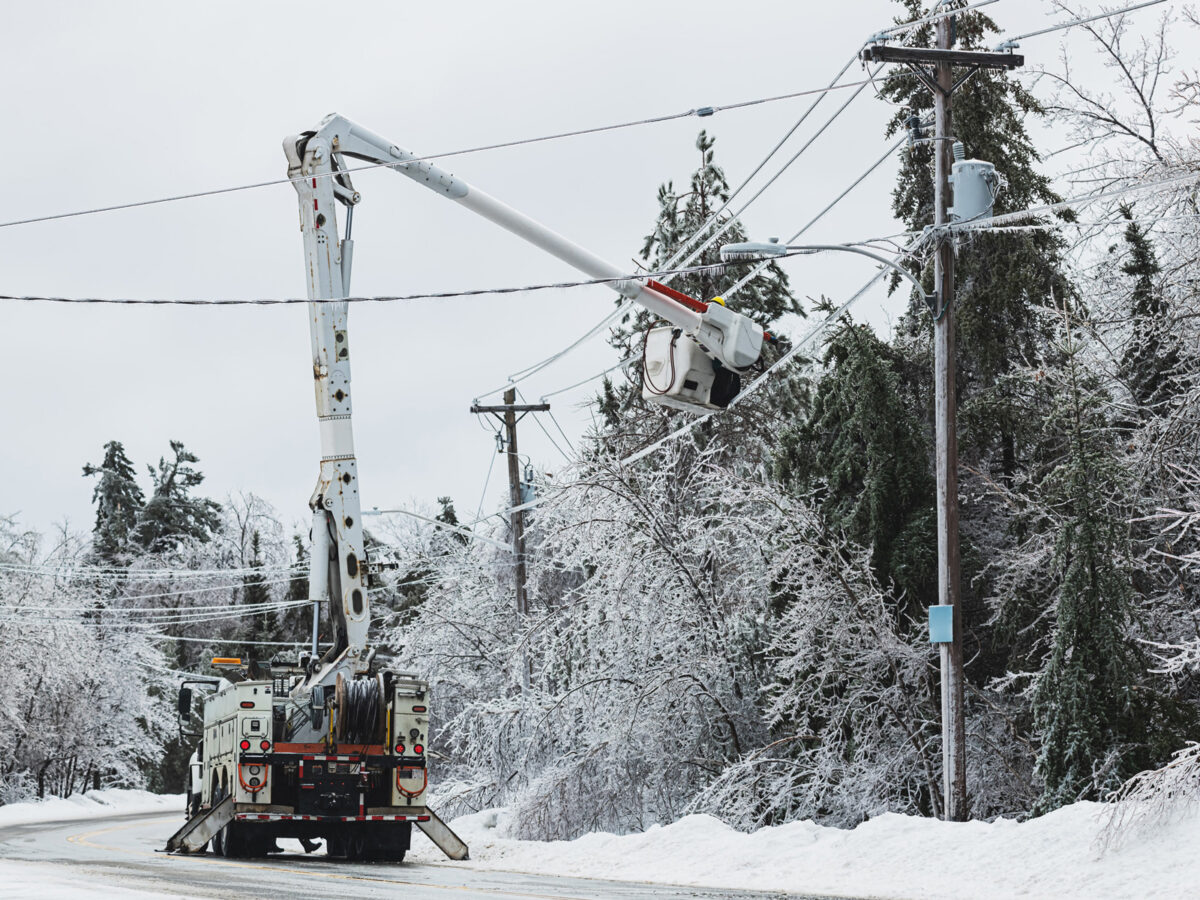
Winter is here, and extreme weather conditions and associated power outages are a real possibility for many areas of the country. Severe winter storms have the potential to push our aging power grid beyond its limits, damage power infrastructure, and cause short and long-term power outages. The powerful storms we have witnessed this year in Kentucky, Tennessee, and California are a reminder that storm related power outages can happen anywhere in the country, and the best way to protect your business is with a permanent emergency backup power solution.
If your business already has a backup power solution and proper maintenance plan in place, then you should be well positioned to weather any short-term or extended power outages. But in extreme winter conditions, there are a few important winter weather maintenance steps to take in order to ensure your generator will be ready for work if needed:
Battery Inspection
While proper generator maintenance should help avoid a battery failure due to age, extreme cold weather can cause failures with older batteries. We recommend replacement of batteries every 3 years, based on the battery built date code and routine capacitive battery testing during routine operational maintenance.
Diesel Fuel Temperature
Extremely cold weather can cause issues with standard DF2 diesel fuel causing it to separate or sometimes referred to as gel, so that it will not flow properly through the engine’s fuel system. This can cause the generator to shut down entirely. Attention should be given to the fuel type, fuel storage conditions, and additives or stabilizers may be needed to avoid this point of failure.
Engine Coolant Heater
Generator engine coolant is designed to withstand a wide operating temperature range, but extreme winter weather can be an issue. An engine that has cold soaked to -20° will very likely not start regardless of how well the rest of the power system has been maintained. That’s why engine coolant heaters are essential for operation in extremely cold conditions, maintaining engine temperature close to 100 degrees F. Oil emersion and housing space heaters can also be used to help with engine heating depending on the type of generator housing used.
Check for Snow Accumulation
A regular maintenance schedule with generator exercising should build enough heat to eliminate snow buildup, but during extended snowstorms, it’s a good idea to check the generator air intake and exhaust to make sure that snow has not accumulated and blocked the airflow, as that can cause several airflow related issues. In high snow accumulation areas, the installation of a snow hood maybe required.
Most generator problems can be avoided altogether with regular maintenance and testing. It’s also important to be aware of what extreme conditions you may be confronted with, and to identify any possible issues before they become a problem.
Global Power Supply offers backup power solutions for businesses nationwide, and we can provide your business with a temporary or permanent backup power system that will ensure power continuity through any storm-related power outages. In addition to sales and rentals, we also offer complete backup power services including installations, maintenance, and testing, as well as monitoring services for true power peace of mind.
For more information about Global Power Supply’s generators in critical applications contact us today.